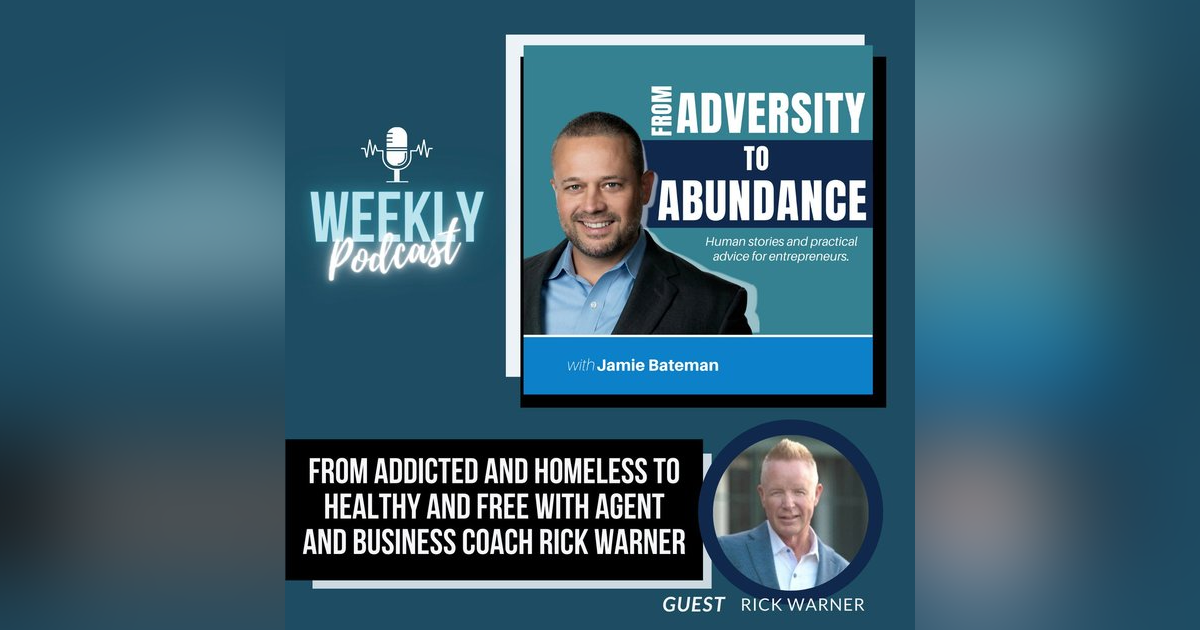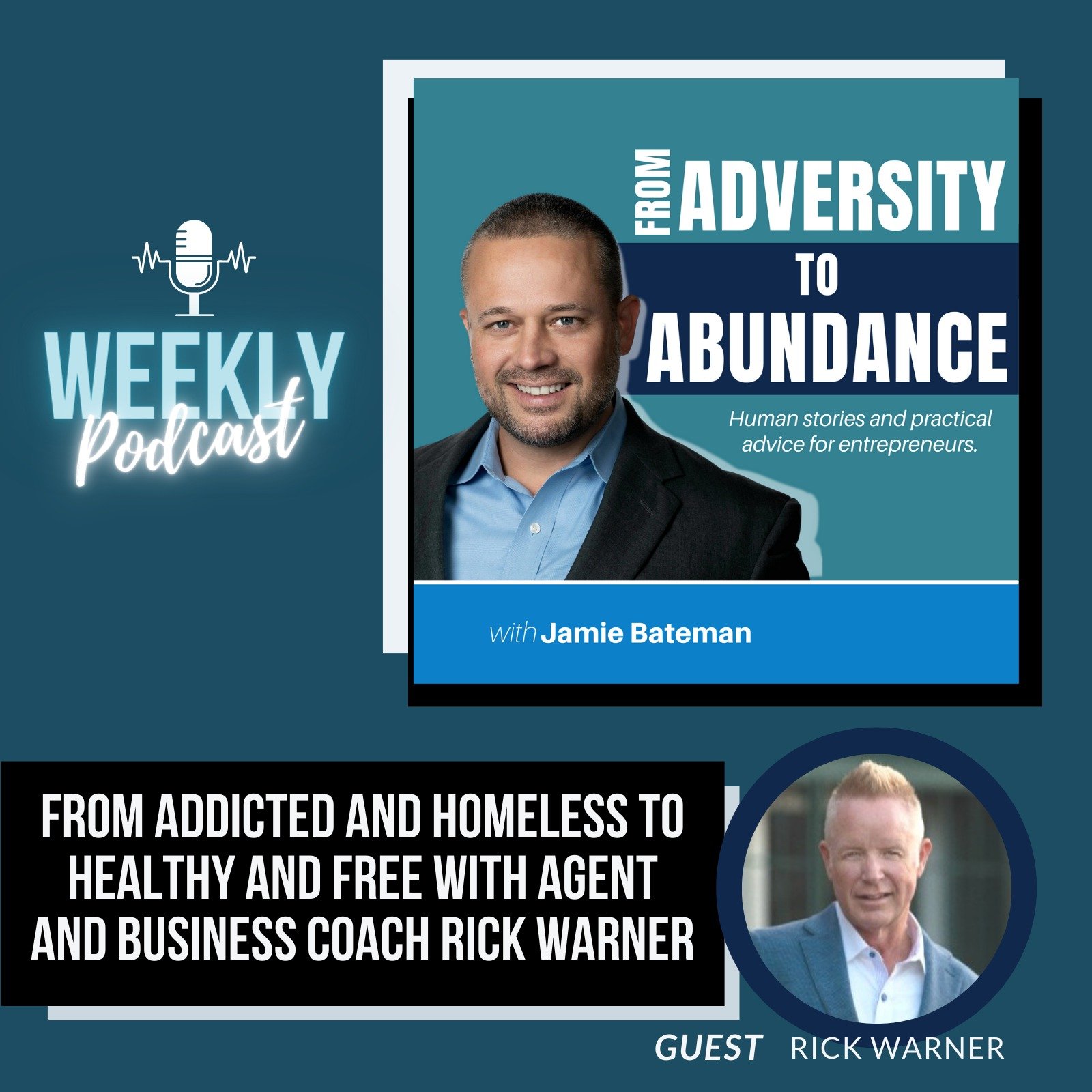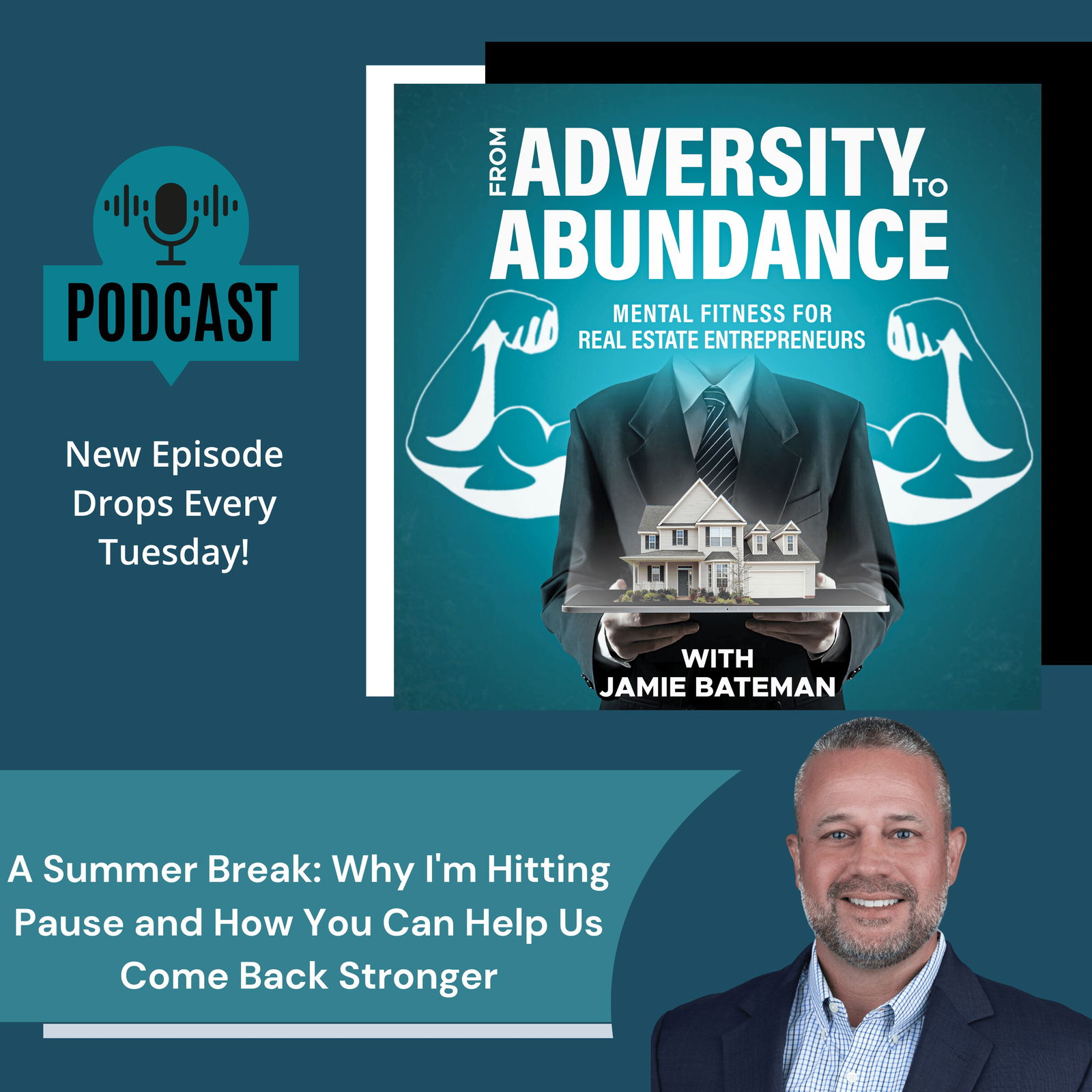From Addicted and Homeless to Healthy and Free with Agent and Business Coach Rick Warner


My special guest is Rick Warner. A confident figure who transformed from a troubled 20-year-old struggling with addiction to a successful entrepreneur and inspiring coach. His journey was filled with challenges, yet his dedication to personal development paved the way for his miraculous transformation. Rick has spent over 20 years building his career in real estate, reflecting his resilience and work ethic. Through Flow Academy, he utilizes his unique experience to coach others towards their own personal and professional breakthroughs.
Whether you're facing adversity by your own hand or by circumstances, don't spend too much time on it's not fair. What's way more important is to figure out what you're going to do about it. What is the next right thing to do? - Rick Warner
In this episode, you will be able to:
- Cultivate grit and personal development amidst life's hurdles.
- Recognize the inherent value of seeking help and dedicating resources to personal growth.
- Unleash the potential that lies beyond the realm of comfort, fueling your growth journey.
- Visit the Flow Academy website to learn more about Rick Warner's coaching business and how it can help small businesses and real estate professionals.
- Explore the resources and tools available on the Flow Academy website to enhance your personal and professional development.
- Consider attending one of Rick Warner's coaching sessions or workshops to gain valuable insights and strategies for success in the real estate industry or small business management.
- If you're interested in real estate, reach out to Rick Warner to discuss potential opportunities or collaborations in the industry.
“ Make this decision to be this efficient today, and when you get to tomorrow, you can decide what you're going to do with tomorrow.”
Books and Resources
The Four Agreements: A Practical Guide to Personal Freedom (A Toltec Wisdom Book)
The Mastery of Self: A Toltec Guide to Personal Freedom (Toltec Mastery Series)
Living Untethered: Beyond the Human Predicament
Connect with Rick Warner:
WEBSITE: https://rickwarnerrealestate.com/
LINKEDIN: https://www.linkedin.com/in/rick-warner/
LINKTREE: https://linktr.ee/rickwarner
FACEBOOK: https://www.facebook.com/rickwarnerfanpage
INSTAGRAM: https://www.instagram.com/therickwarner/
Haven Financial:
https://www.myfinancialhaven.com/jamiebateman/
ATTENTION:
Unlock the secrets to a transformative life with “From Adversity to Abundance: Inspiring stories of Mental, Physical and Financial Transformation”. Buy your copy now and embark on a journey from challenges to triumphs!
AMAZON: https://www.amazon.com/dp/B0CGTWJY1D?ref_=pe_3052080_397514860
Connect with us
WEBSITE: https://www.adversity2abundance.com
Leave us a rating or review: https://www.adversity2abundance.com/reviews/new/ or here
Got comments, feedback or suggestions? We’d love to hear it! https://www.adversity2abundance.com/contact/
Follow From Adversity to Abundance Podcast
FACEBOOK: https://www.facebook.com/profile.php?id=100089126144055
INSTAGRAM: https://www.instagram.com/adversitytoabundancepodcast/
LINKEDIN: https://www.linkedin.com/company/89949391/admin/feed/posts/
YOUTUBE: https://www.youtube.com/@FromAdversity2AbundancePodcast
Connect with Jamie
BOOK: From Adversity to Abundance: Inspiring Stories of Mental, Physical, and Financial Transformation
LINKEDIN: https://www.linkedin.com/in/jamie-bateman-5359a811/
TWITTER: https://twitter.com/batemanjames





